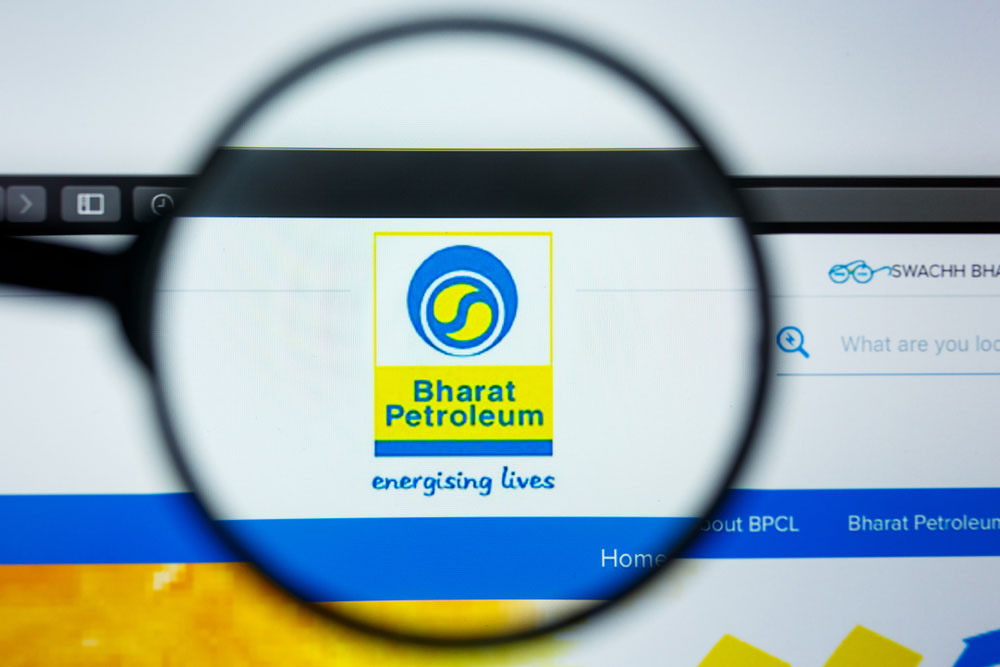A panel of secretaries on Monday approved the privatisation of Bharat Petroleum Corp Ltd (BPCL) and three other PSUs — Shipping Corp of India (SCI), THDC India and Neepco. The secretaries also cleared the sale of 30 per cent of the government’s equity in Container Corp of India (Concor).
The proposal for the strategic sale, or privatisation, will now be taken up by the Union cabinet. If approved, this will be the biggest such exercise since the one undertaken by the Atal Bihari Vajpayee-government in early 2000.
Apart from the cabinet clearance, the sale of BPCL needs to be approved by both the Lok Sabha and Rajya Sabha as the company was formed by an act of Parliament.
Sources said the panel of secretaries, headed by the cabinet secretary, approved the complete privatisation of BPCL and the others, including the transfer of management control.
The government holds a 53.29 per cent stake in BPCL, 54.8 per cent in Concor and 63.75 per cent in SCI. THDC is a 75:25 joint venture between the Centre and the Uttar Pradesh government. The entire equity of North Eastern Electric Power Corporation Ltd (Neepco) belongs to the government.
However, if the Modi government chooses the “safe path” on strategic divestment, BPCL could probably be sold to Indian Oil Corporation Ltd (IOC), while THDC and Neepco may be acquired by other power PSUs.
Sources said the panel favoured NTPC acquiring THDC and NHPC taking control of Neepco.
In all the three cases, there are PSUs with whom there are operational synergies — and that is not the case for Concor and SCI, making it difficult to find a suitable buyer for them.
In SCI, there is the possibility of state-owned refiners getting interested in its crude oil and product tankers.
The privatisation of BPCL will not just shake up the fuel retailing sector, dominated by state-owned firms, but also help to meet at least a third of the government’s Rs 1.05-lakh-crore divestment target.
BPCL, at the close of trading hours on September 27, had a market capitalisation of about Rs 1.02 lakh crore and even a 26 per cent stake sale at this valuation would fetch the government Rs 26,500 crore plus a control-and-fuel-market-entry premium ranging between Rs 5,000 crore and Rs 10,000 crore, sources said.
At Monday’s closing price of Rs 470.05 on the BSE, the sale of its entire stake in BPCL will fetch the government Rs 54,055 crore.
The Concor stake sale will get the government Rs 11,051 crore at Monday’s closing price of Rs 604.6 on the BSE. The stake sale in SCI will earn Rs 1,282 crore. Thus, exit from BPCL and SCI and the sale of 30 per cent equity of Concor will help the government mop up Rs 66,388 crore.
“We are more optimistic about the privatisation of BPCL on three grounds. First, the latest tax rate cut and roll-back of stock market related taxes suggests the government is finally doing big bang reforms, which are welcomed by investors. Second, the latest income tax rate cut would lead to large loss of revenue, which could be made up by the privatisation of BPCL. Third, privatisation would improve the broader market sentiment,” ICICI Securities said.
The government has raised only Rs 12,357 crore so far of the budgeted target of Rs 1.05 lakh crore, which is 30 per cent more than last year’s divestment target.
Most of the money, Rs 10,000 crore, has been raised by floating a CPSE exchange-traded fund.










